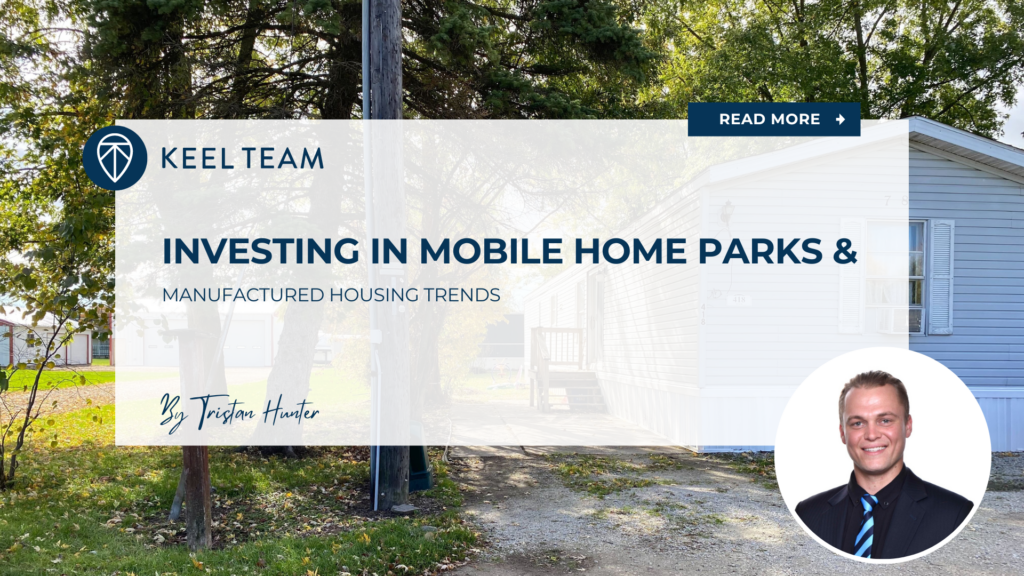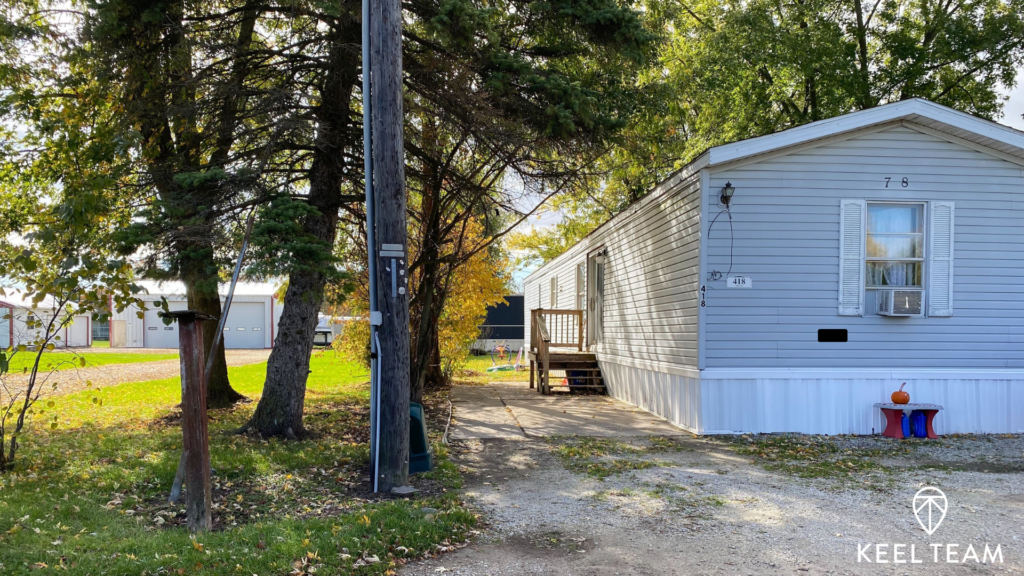Investing in Mobile Home Parks & Manufactured Housing Trends
-
 Tristan Hunter - Investor Relations
Tristan Hunter - Investor Relations

Investing in mobile home parks or manufactured housing offers a unique opportunity in the affordable housing market. Over the decades, this industry has evolved alongside broader economic and housing trends. This post will explore the data driving mobile home park investing and highlight key trends in manufactured housing.
A Look at Manufactured Housing Production Over Time
Manufactured housing has experienced a roller coaster of production levels. In 1973, the industry reached its peak with 579,940 units produced, the highest in history. However, the resurgence seen in 1998, with 372,943 units, was short-lived. The industry struggled due to limited access to chattel capital, or “home-only” lending, which hindered growth.
By 2009, the industry hit its lowest point, with just 48,789 units produced. Despite this, manufactured housing has steadily recovered:
- 2015: 70,544 units
- 2020: 94,390 units
- 2021: 105,772 units
- 2022: 112,886 units
- 2023: 78,169 units (expected to rise to 100,000+ in 2024)
This rebound demonstrates a growing interest in affordable housing options, which makes mobile home park investing more attractive to those who want to capitalize on the demand for cost-effective living solutions.
Are you looking for more insights on investing in mobile home parks and the Keel Team’s approach? Contact us TODAY to learn more!
Land Lease Communities and the Shift in Manufactured Housing
A major trend in mobile home park investing is the increasing number of HUD-Code homes being placed in land lease communities. In 1998, only 15% of new manufactured homes went into these communities. By 2020, that number had jumped to 40%.
This shift resulted from the decline of 10,000 independent manufactured housing retailers at the turn of the century. Mobile home park owners and operators stepped in to buy homes directly from factories. They placed these homes on vacant rental sites, handled marketing, and often provided financing options like seller-finance or lease-to-own deals. This shift allowed community owners to typically increase revenue by controlling both the land and the home sales.
This trend toward community-based housing has become a major selling point for mobile home park investing. Investors generally now have more control over their assets and can potentially maximize returns by offering housing and financing solutions directly to residents.

Challenges in Trailer Park Investing
Though there is significant demand for affordable housing, investing in mobile home parks comes with its own set of challenges. Financing, in particular, has been a key obstacle. Many buyers struggle to secure chattel loans. These loans often have higher interest rates than traditional mortgages, which can discourage potential buyers.
However, this financing gap creates opportunities for mobile home park owners. Offering in-house financing options, such as lease-to-own or seller-financed agreements, can likely attract more residents. By providing these alternatives, mobile home park owners can potentially create steady cash flow and long-term financial stability.
Manufactured Housing and the U.S. Housing Market
Manufactured housing plays a vital role in the broader U.S. housing market. In July 2024, 123,800 housing starts were recorded across various housing categories. This total includes traditional site-built homes, HUD-Code manufactured homes, modular homes, and park model RVs.
Manufactured homes accounted for 7,896 of these housing starts. When combined with modular and panelized homes, offsite construction made up 10,296 units in July. While this number represents a smaller portion of the overall housing starts, it highlights the growing role of manufactured housing in meeting the nation’s affordable housing needs.
However, the U.S. housing market is still falling short of its goals. Experts estimate that the country needs 2,000,000 new housing starts annually to meet demand. In 2024, the projected total is just 1,338,600. This gap further emphasizes the importance of affordable alternatives like manufactured housing.
Key Takeaways for Investors
For investors interested in mobile home park investing, understanding market dynamics is essential. Below are some key considerations:
- Production Growth: The production of manufactured homes continues to rise but still falls short of meeting national housing demand. This creates a potential supply-demand imbalance that could benefit investors.
- Financing Opportunities: Chattel financing remains limited, but mobile home park owners can fill this gap by offering in-house financing solutions. This gives them a competitive edge in attracting residents.
- Community-Based Living: As more manufactured homes are placed in land lease communities, investors can likely capitalize on this trend by offering both housing and services in a managed community setting.
- Regulation and Quality: HUD-Code homes must meet federal standards, which ensures safety and quality. This helps to attract buyers looking for long-term, durable housing solutions.
Conclusion
Investing in mobile home parks offers significant potential for investors looking to enter the affordable housing market. As production continues to rise and more manufactured homes are placed in land lease communities, this investment vehicle becomes even more appealing. However, challenges remain, particularly around financing and regulatory hurdles. Staying informed and flexible allows investors to navigate these issues effectively.
In an era of increasing housing demand, mobile home parks and manufactured housing offer viable solutions for affordable living. With strategic planning and thoughtful investment, trailer park investing can potentially provide steady returns and long-term growth opportunities.
Book a 1-on-1 consultation with Andrew Keel to discuss:
- A mobile home park deal review
- Due Diligence questions
- How to raise capital from investors
- Mistakes to avoid, and more!
Disclaimer:
The information provided is for informational purposes only and is not investment advice or a guarantee of any kind. We do not guarantee profitability. Make investment decisions based on your own research and consult registered financial and legal professionals. We are not registered financial or legal professionals and do not provide personalized investment recommendations.

Tristan Hunter - Investor Relations
View The Previous or Next Post
Subscribe Below 👇





